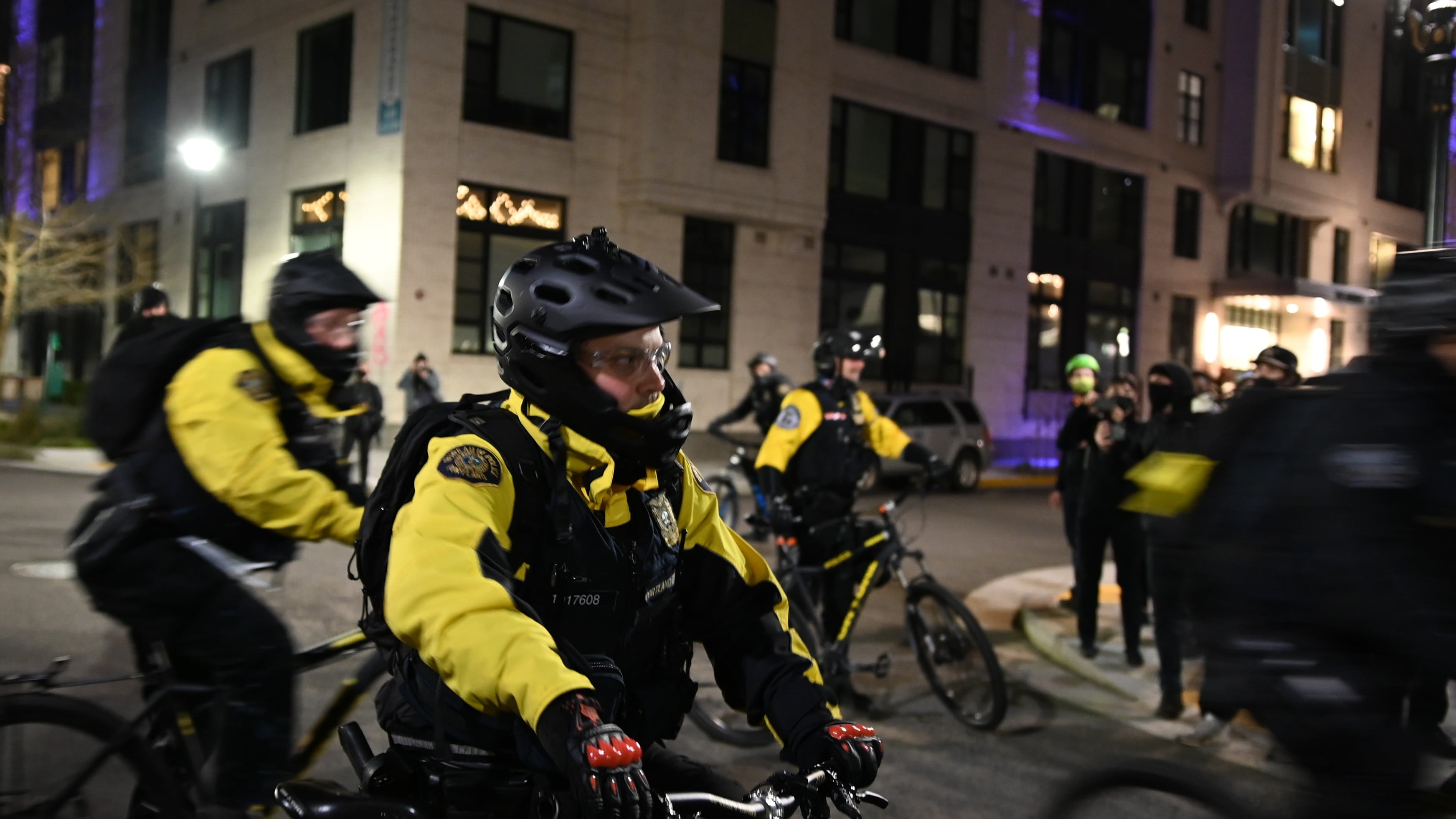Following a Friday night protest in which the Portland Police Bureau detained about 100 protesters on one city block, Mayor Ted Wheeler said during a Monday afternoon press conference that he "absolutely" supports the tactic, known as kettling, in circumstances where it is legally permitted.
"In the case of Friday night, I think it was used appropriately as a law enforcement tactic," Wheeler said when WW asked about kettling. "In that particular case, I applaud the Portland Police Bureau for their thoughtfulness, for their planning and their attention to detail to make sure that, legally, the Is were dotted and the Ts were crossed."
That's a glowing review of a controversial policing technique that led to two lawsuits against the city in 2017. Wheeler said that was around the first time he "encountered kettling as a tactic as mayor."
"I'm on the record as saying, at the time, if this is a tactic that the Portland Police Bureau is going to use, I have some questions, and one of the questions was, is it legal?" Wheeler said Monday. "My observation is that [on Friday night] that tactic was used successfully, it was used peacefully and it ended what could have been further criminal destruction in the City of Portland."
Civil rights groups including the American Civil Liberties Union of Oregon, disagree, describing the police bureau's tactics as "violent and unconstitutional."
Around 9:30 pm on Friday, WW previously reported, shortly after marchers began smashing windows in the Pearl District, Portland police shepherded about 100 protesters onto a one-block stretch of Northwest Marshall Street. Police blocked all exits and announced to protesters through a loudspeaker truck that they were being detained related to what the bureau described as "suspicion of criminal conduct."
Police ordered protesters to sit on the ground, eventually escorting people out one and a time. They required protesters to identify themselves and be photographed "as part of a criminal investigation." Police arrested those who declined to do so. The next day, the bureau announced charges against 13 protesters.
The tactic drew swift condemnation. On Saturday, the Oregon Justice Resource Center, the American Civil Liberties Union of Oregon and the Oregon chapter of the Council of American-Islamic Relations called on the U.S. Department of Justice to investigate the Portland Police Bureau.
"What PPB did last night—kettling—is an aggressive and indiscriminate police tactic of surrounding and boxing in a group of people and blocking off all exit points," the groups said in a joint statement.
The Oregon ACLU and the Oregon Justice Resource Center are representing clients in lawsuits relating to PPB's use of kettling. Judges have dismissed or recommended dismissing both lawsuits.
In an interview with Courthouse News on Monday, OJRC attorney Juan Chavez said the dismissal of those cases was on limited grounds—and wasn't a green light for police to stop a crowd en masse to find a few people who might have committed crimes.
"We're not saying you can't stop window breaking," Chavez told Courthouse News. "We're saying you can't stop 100 people who looked at someone breaking a window. The constitution requires more than that."
Multnomah County District Attorney Mike Schmidt has so far issued one criminal charge from the 13 arrests on Friday night. He said in a statement on Monday that he will consider more as police submit cases.
"The issue of mass detention by police to identify individuals and to investigate a potential crime may result in future litigation," Schmidt said. "As some of the cases from Friday night involve mass detention, it is prudent that we not comment any further."
Whether or not kettling will become a regular policing tactic in future Portland protests is unclear. Deputy Chief Chris Davis said during the March 15 press conference that it's uncommon for a protest to escalate to the point where kettling is an option.
"But in this case we believe that it was appropriate given all of the indicators that we had," Davis said. "If the focus of the group is really criminal activity, then you reach a point where there is effectively reasonable suspicion to stop the entire group."
